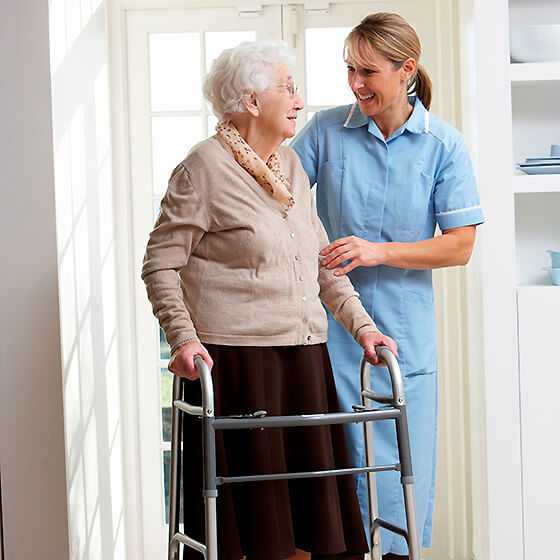The value of dignity is immeasurable; no matter our age or ability level, we all strive to live a life with dignity and joy. That can look different for different people, but at the core is our desire for both community and independence. Independence can be a tricky subject with our senior loved ones. They have lived a full capable life and continue to do so, however, with Aging comes new challenges. These challenges can be frustrating for a highly independent person. It does not mean they are incapable, far from it! These new challenges are just an opportunity to get creative in how they want to live their life. Being as involved and independent as they can in their daily routine can lead to a longer and healthier life. Making their own choice and performing as many of their daily chores and activities as they want can keep seniors mentally and physically active, this minimizes diseases and mental illnesses. Being independent can be a great source of pride and achievement for seniors, which leads to greater confidence and self-worth.
At the core of independence is choice. Aging can take away some ability for seniors to make certain choices, and that can lead to frustration and low self-esteem. By fostering their ability to choose their activities, and support them in achieving their goals, seniors can regain their sense of personhood. In education, when a student needs assistance in solving a problem, teachers do not swoop in and solve the problem for them. That takes away their sense of accomplishment and leads to learned helplessness. They work with the individual to diagnoses the problem and provide effective strategies for solutions. By providing a strategy for students to solve the problem they gain confidence in their ability to problem-solve and their self-esteem grows. Similarly, by communicating with your elderly loved ones about what they are finding frustrating, and working with a home care agency, you can find creative strategies to support their goals.
Strategies to support seniors with their goals are unique to their situation. A few key points to focus on are their daily routine, physical, and mental wellness. By communicating where the trouble points are you can come up with ways to accommodate or modify the problem so that the senior can do it themselves and maintain their independence.
Daily routines
- Is your loved one finding it difficult to go to the grocery shopping?
- Set up a weekly grocery date and go together.
- Have a professional caregiver to help them with the list and take them to the store.
- Is your loved one finding it physically challenging to bath?
- You can replace their bathtub with a shower and a shower seat.
- Install handrails and grips.
- Have their professional caregiver assist them as much as they need while supporting them to do what they can themselves.
- Is your loved one at times in danger because of physical falling or mental unawareness?
- Have a group of supportive loved ones take shifts to do activities together. This is great bonding time and supervision without taking away their independence.
- Have a professional caregiver come in to do their daily chores and activities with.
Physical Wellness
- Is your loved one finding it difficult to maintain their physical therapy goals?
- Treat it the same as if you were going to spin class and do it together. Keeping positive and making it fun can make the exercises more attractive.
- Have their professional caregiver find modifications to assist their goals with approval from their doctor.
- Is your loved one finding it difficult to find the motivation to exercise?
- Set up a fun exercise you or another friend love doing, like dancing, and do it together!
- Have their home care worker find accommodations that support their goals, such as if dancing is too physically difficult, then water aerobics may be a creative solution.
Mental Wellness
- Is your loved one feeling lonely or bored because of any physical limitations?
- It can be difficult if you cannot spend time with them, so finding community-based programs that they can go do regularly to maintain friendships is critical.
- With your support network set up a schedule for calling or video calling them.
- Have their professional caregiver support their goals in maintaining friends in their local area.
- Is your loved one not able to do their favorite activities because of their limitations?
- Brainstorm together how to accommodate their favorite activity to suit them. If they like reading but is finding it difficult, then audiobooks are a good solution.
- Have their home care worker find modifications in their activities to support senior’s goals.
Including your elderly loved one in discussions about their goals encourages confidence in their independence. You should identify their challenges and problem-solve with them to find solutions that support their choices. From there you can find ways to accommodate their ability to perform their activities or modify the activities to support them. Make sure to work together with a home care agency as they have the professional repertoire to find creative strategies for your elderly loved one.

